The invasion of Ukraine, which we are all witnessing, has shattered our sense of security and faith in fundamental values. The international community of Kozminski University, a certified member of the BSIS (Business School Impact System), was affected by this on two levels — there was the overall dimension of human suffering, and there was the impact of the situation on KU’s employees, students, and graduates. It didn’t take long for the KU community to get involved. The sense of unlimited solidarity triggered a massive amount of assistance, which made it possible not only to bring support, but to realise that the University’s mission was (and continues to be) well understood and pursued.
By Grzegorz Mazurek
Rektor
Akademii Leona Koźmińskiego
LinkedIn
For the Kozminski University community, the invasion of Ukraine is a particularly difficult time. Europe’s leading business school is a place to work, learn, and gain experience for many people — regardless of their nationality or place of birth. It’s a safe space for anyone who wants to grow in an international environment and who finds fundamental social values resonating with them. When the citizens of Ukraine, but also their close neighbours, had their lives destroyed, their sense of security taken away, and their faith in the future questioned, the Kozminski University community did everything it could to help those people find the help, support, and faith they needed.
More than a building
It did not take long for the KU community to pitch in shortly after the outbreak of the war. A day after Russia launched its invasion of Ukraine in February, Kozminski University swung into action. The Polish business school opened its doors to Ukrainian refugees and, acting together with NGOs and other entities, set up the first “Support Centre” at its Warsaw campus, operating 24/7. Hundreds of refugees found humanitarian and legal assistance there. KU arranged for accommodation for 340 families, including nearly 500 children.
Many of the 1,300+ volunteers who assisted thousands of those in need were KU students. Kozminski University became much more than a building. For many weeks it was a home for anyone in need of shelter. The volunteers worked on site, but also offered accommodation and arranged for donations of the necessary supplies. They also travelled to the border, where they supported the refugees and helped them take their first steps in Poland. KU graduates joined the initiative as well and helped provide the indispensable resources to the Ukrainian territorial defence forces.
The entire Ukrainian community living in Poland and involved with KU became the main concern of the KU community. Acting with the well-being of those affected by the invasion in mind, KU arranged for the necessary forms of support right away — provided by both KU staff and qualified specialists from MindMed Psychotherapy Institute. Thinking of its international and multicultural family, Kozminski University offered quick counselling through its special Wellbeing Office. Legal Office staff members, in turn, supported Ukrainian refugees in matters concerning the legalisation of their stay in Poland.
Words that make up sentences
In addition to emergency relief provided on site, there were also activities involving education and spreading knowledge about the invasion of Ukraine and its consequences. KU staff members gave a number of interviews and commentaries, but also run online seminars, discussing the mechanism of Russia’s aggression against Ukraine in the light of international law. The response to these activities was great as they addressed the concerns of the time, those arising “here and now”, so to speak.
KU academics continue to take active part in media debates and appear on major Polish news stations. Since the beginning of the invasion, they have been sharing insights and knowledge, and offering commentaries on the developments taking place. They keep on appealing for support and discuss the current situation and the potential impact of the war in the international arena. Since day one of the invasion, KU experts have been calling for efforts to bring justice and minimise human, material, and moral losses.
And then there’s the financial support, which has been quite significant too. A fundraiser was launched almost immediately at KU to purchase the necessary products. In the first three days, KU raised more than PLN 40,000 to help Ukrainian students, graduates, employees, and their families. But the fundraising campaign did not end there. To date, KU has managed to donate more than PLN 400,000.00 as well as provide huge amounts of in-kind donations to those who have suffered from and those on the front line.
Involvement at the core
There is this inherent belief at KU that the purpose of any business school should be, among other things, ethical leadership, supporting entrepreneurship and society — if only by responding effectively. Kozminski University remains committed to developing the competencies of its students to enable them to make a positive difference, to have an impact.
The Kozminski Foundation carries on with its initiatives aimed to support e.g. students from Ukraine to this day. This takes the form of e.g. scholarships for outstanding students, financial support and in-kind support — wherever necessary.
Kozminski University has become a member of an international consortium for scientists in exile — the New University in Exile Consortium. The New School in New York spearheaded the establishment of an international network of universities providing refuge and opportunities for further work for scientists forced to emigrate from their home countries and home institutions. Kozminski University is the only higher education institution from Poland and Central Europe to be a member of this consortium. Together with Carnegie Mellon, McGill, Northwestern, Columbia, Yale — a total of nearly 50 well-known educational institutions from around the world — it is united in its concern for intellectual capital and respect for freedom in every area of human activity, with a special focus on freedom and independence in science and research. For scientists, this means free access to library resources and webinars as well as the opportunity to continue their own research.
KU also works closely with Ukrainian universities — Krok, University in Kyiv, Alfred Nobel University in Dnipro, Lviv Polytechnic National University. The employees of these universities can take advantage of extensive day-to-day support. Kozminski University also hosts students from Alfred Nobel University in Dnipro, Shevchenko University, and Mariupol State University/Lviv Polytechnic National University as part of student exchange programmes, offering them grants and scholarships.
For the Rector of Kozminski University, the university is all about values. It was natural that an act of global solidarity with Ukraine would come about spontaneously and become another testimony of commitment to the values that are inherent to KU’s culture and that lie at the heart of the civilised world: freedom, democracy, and human rights.
An important thing to add here is that the attitude and involvement of the entire KU community have been noticed and recognised, the proof of which is the award in the Engaged University of the Year category in the European Triple E Awards competition for higher education institutions. The university has been commended for its role in making the world a better place. And while no appreciation matters in the context of war, it does prove that concern for society matters whatever the circumstances. “The remarkable case study” of Kozminski University’s efforts in the face of war can be inspiring to others because it is a story that shows that conducting any activity in isolation from its impact on society is simply pointless.

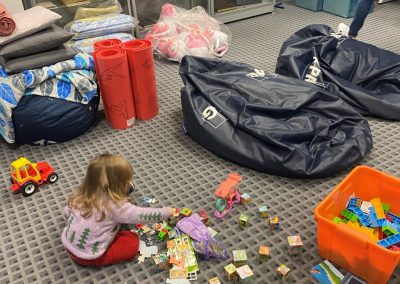
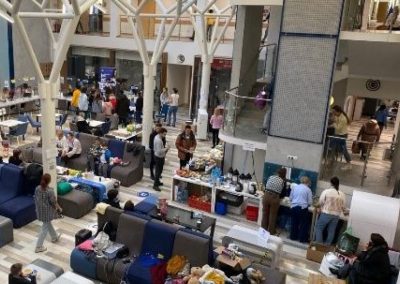
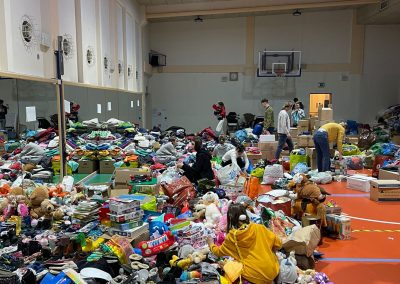
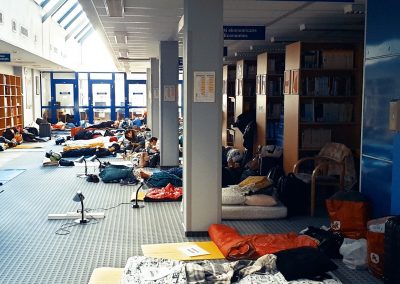
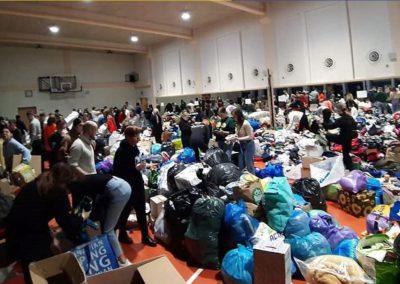
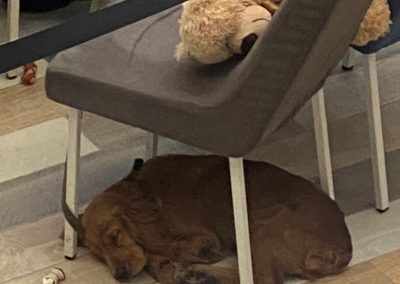
0 Comments